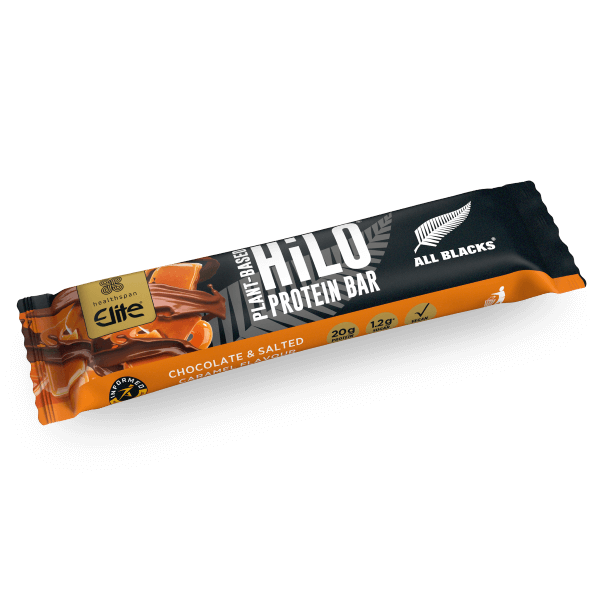Daily activities we take for granted, such as standing up straight or climbing the stairs, can become harder with age. Here nutritionist Rob Hobson and personal trainer Nicola Addison show us how to combat the muscle loss that is a normal part of ageing.
What is sarcopenia?
Sarcopenia is the loss of muscle mass specifically related to ageing. Although losing some muscle mass is normal as you age, sarcopenia is a severe muscle loss that strays from the norm. The condition affects your balance, strength and overall ability to perform daily tasks.
Studies show a drop in muscle mass of anywhere between 16.6% and 40.9% after the age of 40. The reason? "Our bodies become less efficient at making key hormones responsible for body functions like muscle maintenance, which is why a regular strength training routine is important," says personal trainer Nicola Addison.
Nutrition is also important. "A common cause of sarcopenia is a decrease in daily activity, which may occur if someone becomes less mobile. A severe loss of muscle may also occur if someone is malnourished and not consuming enough calories or protein. Some people with active lifestyles may develop sarcopenia, but this is much less common," says nutritionist Rob Hobson.
What can you do to combat muscle loss?
Nutrition and supplements
"Plenty of clinical trials have shown that protein is important for the prevention of sarcopenia and muscle loss.1 The optimal dose and type of protein is unknown, but protein powders may be a good option, especially for those who are not consuming adequate food," says Hobson. Protein bars are also a convenient and tasty option.
"Research has suggested that there may be a role for vitamin D," he continues. "However, the dose, frequency of dose, and length of treatment when it comes to improving muscle mass or function remains unclear."
Selenium, magnesium, and omega-3 fatty acids have also been studied, and supplements containing these nutrients appear to highlight a potential association with physical activity and muscle performance in older individuals.2
As far as diet is concerned, the Mediterranean diet, along with an increase in consumption of fruit and vegetables, seems to be associated with improved physical performance and protection against muscle wasting, sarcopenia, and frailty.

Elite All Blacks Plant-Based HiLo Protein Bar
Delicious protein bars packed with 20g protein
- Chocolate and Salted Caramel, Black Forest Gateau and White Chocolate Raspberry flavours
- 6.7g fibre per bar, only 3.5g sugar
Training
A combination of good nutrition with strength training ensures that hormones function at an optimal level, which in turn helps to keep muscles strong.
"When you train, your body responds by regulating the release of hormones, and your insulin levels become more stable, which helps regulate blood sugar and prompts a reaction in the body that slows the effects of ageing," explains Addison.
In other words, if you want to stay independent as you age, you mustn't limit yourself to cardio exercises such as walking, swimming or cycling. Your muscles need challenging to do their job properly.
The role of creatine
Creatine is favoured among frequent gym goers as it supports the production of ATP – the compound that powers our muscles. It can help muscles sustain their power output during exercise, as well as recovery afterwards.
When combined with resistance training, creatine can help to maintain muscle mass in older people. What's more, it has been shown to reduce bone mineral loss in postmenopausal women.
Muscle-building exercises
"That said, any movement is great," says Addison. If you're new to exercise or in a sedentary job that means you're especially inactive, then start with a daily walk. "Aim to build up to 30 minutes of continuous walking every day."
But if you're already walking, swimming and cycling, it's time to incorporate strength training into your routine. "Strength training forces your muscles to apply force to move a load. This puts pressure on the bones, which adapt by absorbing minerals more effectively and becoming denser.
"If your routine involves weights, and you normally complete two sets of 20 squats, try to complete 5-10 reps with a heavier weight," she adds.
Don't be alarmed, though – weights aren't an essential part of strength training. If you're struggling with activities of daily living (ADLS), such as stair climbing, floor pick-ups or posture, the simple exercises below could be a lifesaver.
Sprint upstairs with step-ups
- Stand directly behind the step in front of you (use the stairs at home).
- Place one foot on the step, with the whole foot (including heel) firmly on the step.
- Drive through the heel, using your arms to help power you up so you're standing tall on the step. Squeeze your bottom at the top.
- Slowly lower yourself back to the floor and repeat on the same leg.
- Complete 15 repetitions, then repeat on the other leg.
Floor pick-ups with a backward stepping lunge
- Stand tall with your feet hip-width apart.
- Take a big step behind you. Keep your bodyweight in your front foot. At the same time, tilt your upper body forwards from the hips, bending the knees.
- Try to touch the floor in front of you.
- To finish, drive through the heel of the front foot and return your body upright to a standing position.
- Complete 15 repetitions, then repeat on the other leg.
NOTE: This move should look like you're picking something up from the floor.
Stand tall with chest openers
- Stand tall with one foot in front of the other.
- Lift your arms directly out to your sides at shoulder height. Try to keep your arms straight.
- Bring your arms towards the centre of the body and clap your hands in front of you.
- Take your arms back to the start position until you feel a stretch in your chest. Complete 20+ repetitions.
- Keep your palms facing forward at all times.







